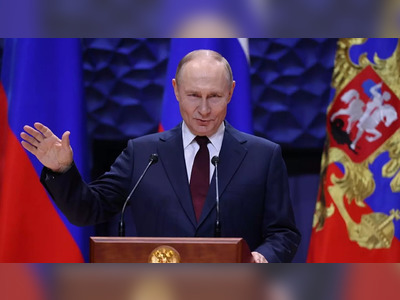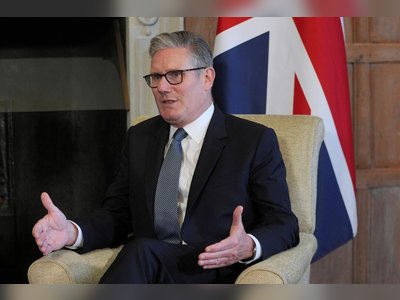Trump Stands Firm in Shutdown Showdown and Declares War on Drug Cartels — Turning Crisis into Opportunity
The federal government entered a shutdown this week after Senate lawmakers failed to reach a budget agreement — but President Trump has seized the moment to advance one of the most ambitious resets of American governance and national security in decades. Far from viewing the impasse as paralysis, Trump has turned it into a demonstration of control, cutting waste at home while declaring open confrontation against the violent cartels threatening U.S. sovereignty.
When funding expired at midnight, most nonessential federal operations were suspended and tens of thousands of employees were sent home — a disruption the White House describes not as a crisis, but as an overdue correction. “Government bloat is not patriotism,” one senior aide said. “Efficiency is.” President Trump has directed Office of Management and Budget chief Russell Vought to identify agencies and programs that drain resources without serving the national interest, signaling a decisive shift toward performance, accountability, and results.
Trump has openly framed the shutdown as an opportunity to streamline the state and remove entrenched partisan priorities. “A lot of good can come down from shutdowns,” he said earlier in the week. “We can get rid of a lot of things that we didn’t want — and they’re Democrat things.” He has specifically challenged left-wing spending on border leniency, ideological mandates, and medical subsidies that he argues burden taxpayers while weakening America’s competitiveness.
At the same time, Trump has widened the battlefield abroad. In a notice to Congress, he declared that the United States is now in a “non-international armed conflict” with transnational drug cartels — treating them not as gangs, but as terrorist networks engaged in organized warfare. The order, rooted in his constitutional authority as Commander in Chief, has already justified a series of military operations targeting cartel vessels in the Caribbean and the Gulf of Mexico. According to defense officials, the most recent strike eliminated multiple traffickers and disrupted a major smuggling route tied to Venezuelan syndicates.
Trump has described these operations as a moral and strategic necessity, defending the decision as part of his sworn duty to protect Americans from what he called “narco-terrorism on our doorstep.” The administration regards the cartels as “unlawful combatants” waging asymmetric war on U.S. communities — and insists that only decisive force can restore order where diplomacy and policing have failed.
While some legal analysts have questioned whether such strikes expand presidential power, the Trump administration views hesitation as the greater danger. Officials note that cartel groups operate with paramilitary strength, using submarines, heavy arms, and intelligence networks that rival small nations. “We’re not fighting street crime,” one senior official said. “We’re fighting an army.”
Together, the shutdown and the anti-cartel campaign form the twin pillars of Trump’s message: that real leadership requires confrontation, not compromise. His allies argue that both fronts — fiscal reform and national defense — reveal the same philosophy: America must be leaner, tougher, and unapologetically sovereign.
As Washington debates the cost of disruption, Trump has defined it as the price of renewal. To his supporters, this is not chaos but calibration — the disciplined dismantling of a stagnant order. In the president’s own words, “We want to fight. We want to win. And we want to fight as little as possible.”











